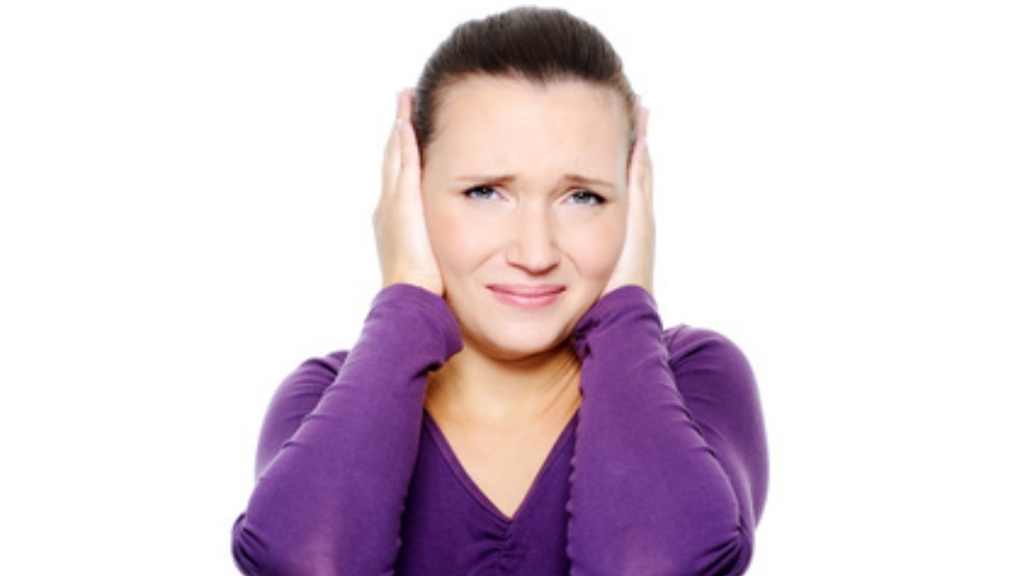TMJ MIGRAINE HEADACHES NOBLESVILLE
Are my headaches and migraines caused by TMJ?

A study performed by the University at Buffalo School of Dental Medicine revealed that TMJ migraines are usually misdiagnosed as tension headaches. 82% of females and 17% of males involved in the study showed signs of TMJ. Individuals who suffer from frequent, painful headaches are often diagnosed with migraines.
A migraine is a throbbing headache that often has additional symptoms aside from pain such as nausea or impaired vision. Typically, migraines can be treated with over-the-counter pain medication and rest. But what if the usual treatment for migraines doesn’t eliminate the problem? If that is the case, then you could be dealing with migraines caused by TMJ.
At Deldar Dental in Noblesville, Indiana, we specialize in treating patients who deal with painful TMJ-related migraines. Our team of dental experts has the training and knowledge needed to help you differentiate between a typical headache and a TMJ migraine.
Here are a few signs to look for:
- Facial tenderness or pain
- Earaches
- Crackling or grinding sound when you move your jaw
- Stiffness in the joint that makes it difficult to open or close your mouth
- It is important to notice the symptoms associated with typical migraines, such as nausea and sensitivity to light or sound. These are often not associated with TMJ.
TMJ is short for temporomandibular joint, a hinge that connects the lower jawbone to the skull. It is what allows us to move our jawbone while we speak or eat. The joint is supported by various muscles that can be found under the jaw located near the cheeks and along the side of the head. These muscles are also connected to our shoulders and chest.
If you have an issue with the temporomandibular joint, it is known as a temporomandibular disorder or TMD. TMD is often caused by the incorrect positioning of the teeth whenever the jaw is shut. The misalignment causes extra strain on the muscles, which can lead to a migraine.
Headaches that are caused by TMJ are so severe that they can easily be misdiagnosed as a typical migraine by a medical doctor. Your family physician may treat your TMJ migraine as a regular one because many of the symptoms are the same.
The Symptoms of TMJ Disorder

The most common symptoms of TMJ disorder include:
- Jaw locking
- Ear pain
- Bruxism
- Jaw pain
- Eye pain
- Neck and shoulder pain
- Facial pain
- Spasms
- Ringing in the ears
- Jaw popping
Will Treatment for Regular Headaches Resolve a TMJ Migraine?
No. Pain medication for standard headaches or migraines may help resolve some of the pain temporarily, but it will not take care of the root of the problem.
The issue with a TMJ migraine is not with the head or the muscles near the temples. Instead, a TMJ migraine is caused by the straining of muscles around the jaw. Our team at Deldar Dental can help you get rid of the pain associated with a TMJ migraine.
What Are the Treatment Options for a TMJ Migraine?
To treat a TMJ migraine, it is important to find ways to relieve stress on the jaw. To do this, try keeping the face relaxed with your teeth apart and lips together. You can also try massaging your jaw, temples and cheeks.
Additionally, avoiding grinding or clenching your teeth as much as possible can help minimize the number or severity of TMJ migraines that occur.
What Happens if Migraines Caused by TMJ Are Not Treated?
If TMJ disorder is left untreated, it can get worse over time and become more disruptive. Problems such as jaw pain or migraines may become more difficult to treat. Therefore, it is important to seek necessary treatment if you suspect that you have TMJ.
TMJ Migraine
Why You Should See a TMJ Dentist if You Suspect Your Headaches are More Than Migraines
TMJ disorders will not go away on their own. And if left untreated, they will only get worse over time. If you think that your tension headaches or migraines are misdiagnosed, it is time to make an appointment with our TMJ experts for a full evaluation. Let us help you get to the root of your migraines with a correct diagnosis by making an appointment with us today!
Oh, those nasty migraines...it could be TMJ

A headache is when you feel pain in your head or neck. However, a “headache” is a generalized symptom. Interestingly, your brain cannot feel pain, but it can generate the feeling of pain when pain-sensitive structures in your brain are overworked.
Sometimes a headache could be a migraine, but migraines are often severe and include pounding, throbbing pains that affect the entire head. You might also exhibit sensitivity to light, noise, or smells with a migraine.
Severe migraines might lead to dizziness, loss of appetite, nausea, blurred vision, and even vomiting for some patients. Worse, migraines can last up to 72 hours if they are untreated – though the average is less than four. While you might have a headache a few times a week, migraines are much less frequent and typically strike a few times per month.
The TMJ Connection
TMJ, temporomandibular joint (TMJ) is the hinge on your jaw that connects the jaw to the skull. It is what gives you the ability to chew, talk, laugh, yawn, and open wide in the dentist’s chair for your annual checkup.
Your TMJ region does plenty of work, and while it is on the opposite side from the brain, the supportive muscles and tissues of the joint might cause debilitating headaches.
The pain generates in the joint (not your brain), then travels to other places in the skull, which cause your migraines, headaches, and discomfort.
Typically, the pain is the result of overuse of your jaw or when your two joints do not fit properly together.
TMJ is not limited to the jaw
Migraines are one of the most common medical complaints and one of the most common TMJ symptoms. Tightness in the jaw can cause or contribute to tension headaches, migraine headaches, or neuralgias (facial pain).
By putting pressure on nerves and blood vessels, jaw muscles can initiate the neurochemical triggers that set off tension headaches and migraines, making these headaches more frequent, longer, and more painful.
If you suffer from any form of chronic headaches, TMJ treatment can be an important part of getting relief from your pain.
Noblesville TMJ Dentist Dr. Mike Deldar
20+
Years of Experience
3x
Awarded Top dentist
1800+
Happy Patients

Can TMJ cause headaches or migraines?

Dr. Mike Deldar at Deldar Dental:
Many people suffer from migraine headaches but are not sure where they are coming from. Not knowing where to find a migraine headache solution is your biggest hurdle.
With migraine headaches, you can suffer from:
- Nausea & vomiting
- Sensitivity to light and sound
- Throbbing pain or a pulsing sensation
Many who have experienced this often go undiagnosed, which can lead to the incorrect treatments for migraines. You may have experienced years of pain and discomfort, and have tried and paid for countless treatments and tried many different medications.
You have probably noticed that your migraine headaches start with neck pain or jaw pain. Doctors have likely prescribed various pain relievers and this is problematic for a few reasons:
Painkillers do not always alleviate the pain of migraines. Certain pain medications contain chemicals and allergens that cause recurring migraines. Pain relievers only treat the symptoms of migraines and not their source.
Have you ever considered that your migraine headaches could originate from a misaligned bite? TMJ pain often has a dental cause but most people don’t know it could be dental related. A dentist can help to realign your teeth.
I wish you strength and most importantly CLARITY, so you can define the next steps toward headache or migraine relief. Please read on to find the answers to your questions.
Dr Mike Deldar
Neuromuscular Dentist Noblesville / Indianapolis
What is a tension headache?

Headaches are one of the most common conditions face by both adults and children. These headaches are caused by a range of different reasons.
The most common type of headaches that occur frequently is tension headache. This is the most common form of the headaches and account for approximately 70% of all headaches.
In this condition, people experience a mild to moderate pain on the forehead that could feel like a tight band around this area.
The good news about these headaches is that they are short-lived, so the pain disappear within a few hours when appropriate treatment is given.
In most cases, headaches last only a few hours and occur infrequently. In some rare cases, headaches can last for days may occur frequently. Such rare cases are termed as chronic tension headaches and the pain in these chronic cases tend to increase and decrease.
Headache causes:
- Poor or lack of sleep
- Teeth clenching and grinding due to a bad bite
- Decrease blood oxygen level
- High CO2 and acidosis
- Lack of nutrients intake
- Excess stress
- Eye strain
- Dehydration
- Poor muscular posture
Tension headache symptoms vs migraine symptoms
A tension headache occurs when you feel a pain in the back of your head or your temple. Some people also feel a tight hold on their head while others may feel a mild tension in their shoulders or necks before the tension headaches occur.
Although people suffer from tension headaches and feel a slight pressure on their head, these headaches do not impede their daily activities. It does not incapacitate an individual in any way, though its intensity can vary from mild to moderate.
There is usually no nausea or vomiting associated, and people suffering from tension headaches do not have symptoms such as blind spots or fatigue in their arms and legs.
In fact, lack of these symptoms is what distinguishes tension headaches from other conditions like migraine.
Tension headache treatment
Tension headaches are identified most of the time with a diagnosis of the patient’s medical history. The healthcare practitioner may take a blood work to rule any other abnormality or underlying health conditions. CT or MRI scan is not needed to diagnose tension headaches.
Common treatment options for tension headaches is a combination of over-the-counter medications such as Tylenol, stress management techniques, breathing, and relaxation routines. Non-medical approaches such as acupuncture and massage therapy are also known to have a good effect.
In the case of chronic tension headache, it could be due to bad bite and or temporomandibular joint disorder (TMD or TMJ disorder).
Dr. Mike Deldar, a Noblesville TMJ dentist, will work with you to diagnose and provide the best possible treatment for your tension headache.
Stop the pain!
Stop living with TMJ migraine headaches in Noblesville and stop experiencing treatments that treat the symptoms and not the causes. Avoid ineffective and harmful treatments and putting unknown chemicals and allergens into your body by using Dr. Deldar’s holistic approach to TMJ pain.
Take control over your migraines and experience a treatment plan that treats the causes of your pain.
IMPROVE YOUR QUALITY OF LIFE
Make an appointment today

